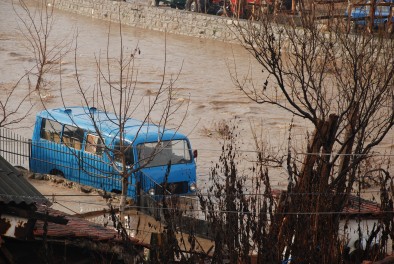Founded in New York at the UN Special Thematic Session on Water and Disasters in March this year, the HELP/UNSGAB High-level Experts and Leaders Panel on Water and Disasters is a successor arrangement to the HLEP/UNSGAB High-level Expert Panel on Water and Disaster.
The HLEP had been established in 2007 by the founding Chair Dr. Han Seung-soo as the science-policy interface of the UN Committee on World Food Security with the aim to improve the robustness of policy making by providing independent, evidence-based analysis and advice at the request of Committee on World Food Security (CFS).
The objective of the new body HELP is to achieve a higher profile with political leaders, influencing inter-governmental decision making by inviting government representatives and international organisations. The main focus is to raise awareness and promote actions for changes on water and disasters, including the original HLEP Members together with Members from Leaders, such as governments and international organisations. Dr Schaefer-Preuss is a member of the HELP panel.
Related to the Tokyo meeting, the Japanese authorities organised a field trip to the tsunami affected areas - Rikuzentakata city and Minami-Sanriku town - a visit which “gave important insights on how to tackle such disasters,” Dr Schaefer-Preuss said.
“Within the perspective of Integrated Water Resources Management, it is important to manage water better throughout all climate conditions, whether they bring too much or too little water. Within GWP, both the flood management and the drought management programmes are part of a portfolio of climate programmes, which seek to build climate resilience through improving water security”, Dr Schaefer-Preuss said, emphasizing the pivotal role of water management in addressing disaster effects.
After the conclusion of the meeting, some of the participants were invited to an audience with HIH the Crown Prince of Japan. The conversation focused on water and disaster related challenges and how Japan has been working to overcome the effects of the tsunami and earthquake in March 2011.

